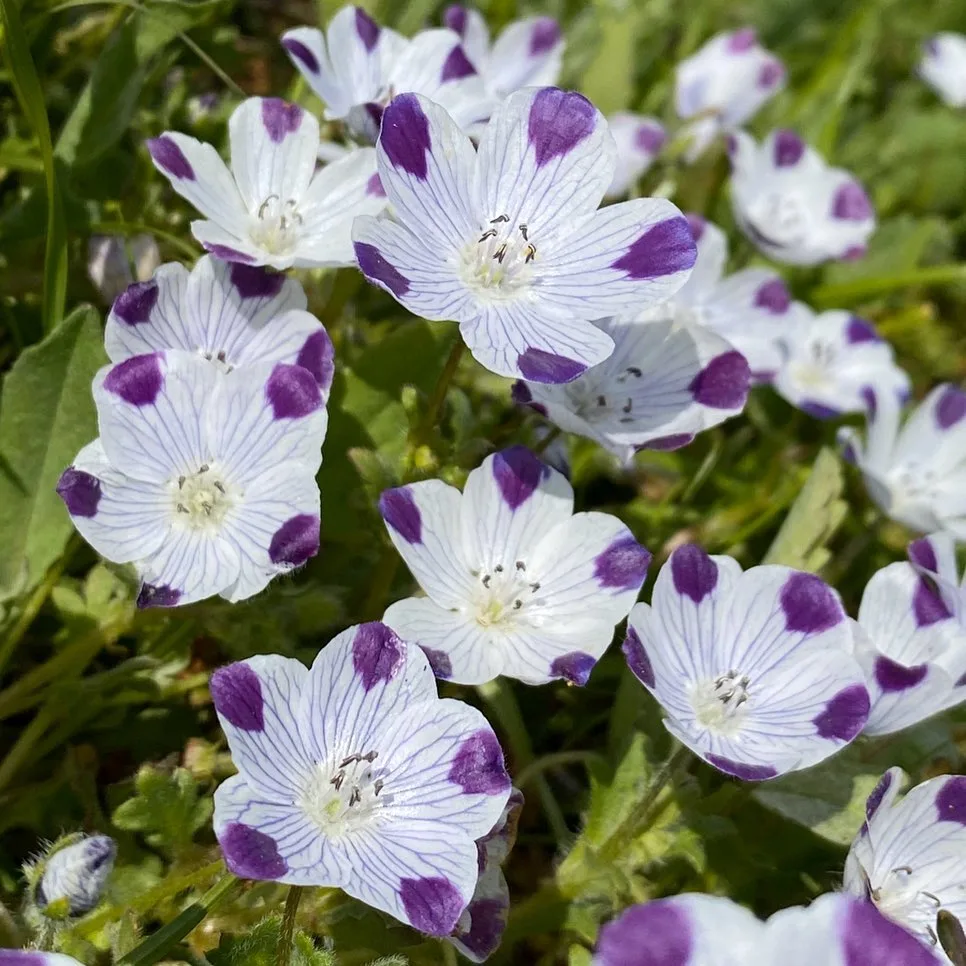
FAQs About Lemon Thyme
Lemon Thyme – Thymus Citriodorus is one of those herbs that I find incredibly versatile and interesting. Over the years, I’ve fielded many questions about it, so I thought I’d compile some of the most common FAQs and share my insights. From its safety for pets to its growing requirements, here’s everything you need to know.
357 Species in Genus Thymus
Is Lemon Thyme a Perennial?
Yes, Lemon Thyme is a perennial herb. This means it can live for several years and will return each growing season if properly cared for. I’ve found it to be quite resilient, especially in well-drained soil and sunny spots.
How to Use Lemon Thyme?
Lemon Thyme is wonderfully versatile. I use it in cooking to add a citrusy note to dishes. It pairs well with chicken, fish, and vegetables. You can use fresh or dried leaves in soups, stews, and marinades. I also love adding it to homemade bread and salad dressings for an extra zing.
What to Do with Lemon Thyme?
Apart from culinary uses, Lemon Thyme can be used to infuse flavor into oils and vinegars. I’ve also made refreshing herbal teas from its leaves. For those into DIY, it’s great for making sachets and potpourris, adding a lovely fragrance.
Is Lemon Thyme Safe for Cats?
Yes, Lemon Thyme is generally safe for cats. I’ve grown it around my own pets without any issues. However, as with any herb, it’s a good idea to monitor your cat’s behavior if they have a tendency to chew on plants.
Is Lemon Thyme Safe for Dogs?
Lemon Thyme is also safe for dogs. I’ve had no problems with my dogs being around it, and they don’t seem interested in eating it. It’s always best to keep an eye on your pets, though, to ensure they’re not consuming large amounts of any plant.
Does Lemon Thyme Repel Bugs?
Yes, Lemon Thyme can repel some bugs. I’ve noticed fewer insects around my garden when Lemon Thyme is growing. Its strong aroma seems to deter pests, making it a handy companion plant.
Does Lemon Thyme Repel Mosquitoes?
Lemon Thyme can help repel mosquitoes. I’ve found that planting it in outdoor spaces has reduced mosquito activity around my home. Its lemony scent seems to be a natural deterrent.
Does Lemon Thyme Spread?
Lemon Thyme can spread, but it does so in a controlled manner. It grows as a low, spreading ground cover, but it’s not overly aggressive. In my experience, it spreads slowly and can be managed with regular pruning.
How to Grow Lemon Thyme?
Growing Lemon Thyme is straightforward. I start by planting it in full sun with well-drained soil. It’s quite drought-tolerant once established, so I only water it when the soil feels dry. It’s also a good idea to space plants about 12 inches apart to allow for their spread.
How to Harvest Lemon Thyme?
Harvesting Lemon Thyme is simple. I cut the stems back to about 2 inches above the soil line, leaving enough leaves for the plant to continue growing. I usually harvest in the morning after the dew has dried but before the heat of the day. This keeps the essential oils at their peak.
Is Lemon Thyme Edible?
Yes, Lemon Thyme is edible. Its lemony flavor adds a unique twist to many dishes. Both the leaves and stems can be used in cooking or dried for later use.
Lemon Thyme vs. Thyme
Lemon Thyme differs from regular Thyme in its lemony aroma and flavor. While regular Thyme has a more subtle, earthy taste, Lemon Thyme adds a citrusy punch to dishes. Both are excellent herbs, but Lemon Thyme is my go-to when I want to brighten up a recipe.
Lemon Thyme vs. English Thyme
English Thyme, or Thymus vulgaris, is the more common Thyme variety and has a milder flavor compared to Lemon Thyme. I find English Thyme to be versatile in many recipes, but for a distinctive lemon flavor, Lemon Thyme is the better choice.
Lemon Thyme vs. Creeping Thyme
Creeping Thyme is a low-growing variety often used as ground cover. Lemon Thyme, while also a low grower, has a stronger lemon flavor and aroma. Both types are great for garden aesthetics, but for culinary uses, Lemon Thyme takes the edge.
Lemon Thyme vs. German Thyme
German Thyme has a more robust flavor compared to Lemon Thyme. In my experience, German Thyme holds up well in hearty dishes, while Lemon Thyme shines in recipes where a hint of citrus is desired.
Lemon Thyme vs. Lemon Balm
Lemon Balm is another herb with a lemony flavor, but it has a different taste and texture compared to Lemon Thyme. Lemon Balm is more lemon-sweet, while Lemon Thyme has a spicier, herbaceous quality. I use Lemon Balm for teas and desserts, and Lemon Thyme for savory dishes.
Lemon Thyme vs. Lemon Grass
Lemon Grass is quite different from Lemon Thyme. Lemon Grass is a tall, grass-like herb used primarily in Asian cuisine, while Lemon Thyme is a low-growing herb with a thyme-like flavor. For a lemony kick in your dishes, you’d choose Lemon Thyme for its subtlety and Lemon Grass for its more pronounced citrus flavor.
What is Lemon Thyme?
Lemon Thyme is a variety of Thyme known for its lemony scent and flavor. It’s a member of the mint family and is used both in cooking and as a decorative plant in gardens.
How to Care for Lemon Thyme?
Caring for Lemon Thyme involves ensuring it gets plenty of sunlight and well-drained soil. I water it moderately and prune it regularly to keep it healthy and productive. It’s quite hardy, but a bit of extra care can make it thrive.
How to Propagate Lemon Thyme?
Propagating Lemon Thyme can be done through seeds or cuttings. I usually take cuttings from a mature plant, strip the leaves from the lower half, and plant them in soil. With a bit of patience, they develop roots and become new plants.
What to Plant With Lemon Thyme?
Lemon Thyme pairs well with other herbs like rosemary, basil, and parsley. It also complements plants like lavender and oregano, creating a fragrant and flavorful herb garden.
Can You Grow Lemon Thyme Indoors?
Yes, Lemon Thyme can be grown indoors. It requires plenty of light, so place it near a sunny window or under a grow light. I’ve successfully grown it indoors during winter, and it’s a great way to have fresh herbs year-round.
Is Lemon Thyme Toxic?
No, Lemon Thyme is not toxic to humans or animals. It’s a safe herb to grow and use, but as with any plant, it’s always best to use it in moderation and monitor your pets’ behavior.
Benefits of Lemon Thyme
Lemon Thyme offers several benefits, including its culinary versatility and ability to repel certain pests. It also has potential health benefits due to its antimicrobial properties, which I’ve found useful for various home remedies.
Common Problems with Lemon Thyme
Common issues with Lemon Thyme include mildew and fungal diseases, especially in overly wet conditions. Ensuring good air circulation and well-drained soil helps prevent these problems. I’ve found that proper spacing and watering practices make a big difference.
Compare with Other Similar Herbs
When comparing Lemon Thyme with herbs like Lemon Balm, Lemon Grass, or even Thyme varieties, each has its unique qualities. Lemon Thyme stands out for its distinct lemon flavor combined with the herbaceous notes of Thyme, making it a standout in both garden and kitchen.
I hope this comprehensive guide helps you get the most out of your Lemon Thyme. Whether you’re cooking up a storm or enhancing your garden, this herb is a fantastic addition.
If i die, water my plants!



